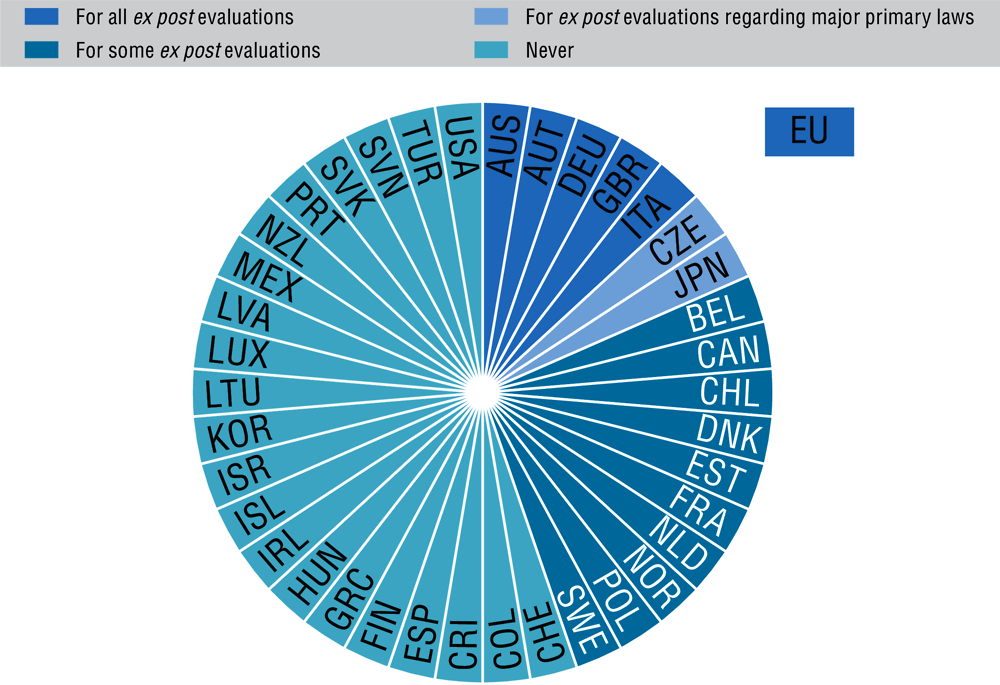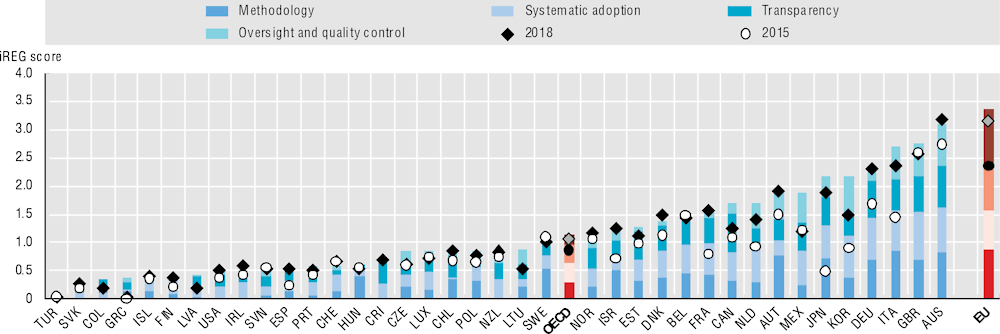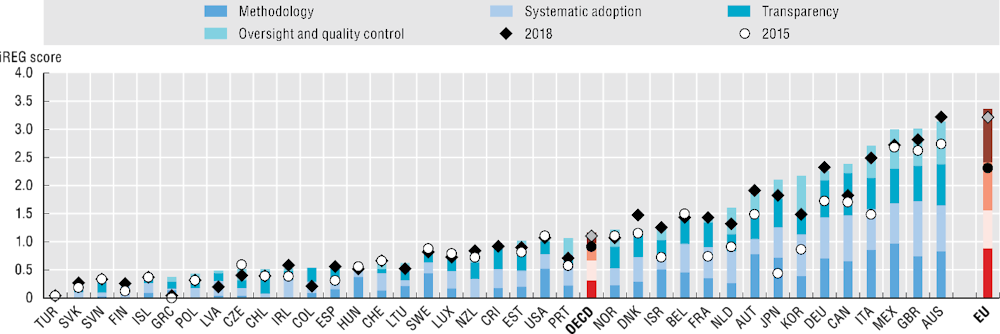All regulations are designed to induce behaviour. However, some work as intended, while others may not. Further, some regulations are introduced without the benefit of testing and public review (see section on regulatory impact assessment). Governments have often needed to act quickly, such as during COVID-19, introducing measures with limited information about regulations’ potential impacts. Regulations may also have unexpected consequences or fail to rectify underlying problems. Evaluations provide a performance check on regulations. They can help to improve the overall regulatory system by increasing its coherence. They also offer an opportunity for stakeholders to bring forward problems and propose solutions. Evaluations can improve transparency, accountability, and compliance with regulations.
Most OECD countries are unaware of whether regulations are delivering as intended. When undertaking ex post evaluations, 21 of 38 OECD countries (55%) do not assess whether regulations achieve their objectives (Figure 5.6). Common practices include sunset clauses (whereby a regulation ceases to exist at a date in the future unless it is reviewed prior to that, and a decision is made to continue it) and one-in-one-out policies (whereby any anticipated costs to business of new regulations need to be offset by reducing existing costs to business). While both tools have their uses, they are more used for limiting increases in the number of regulations, rather than checking whether regulations deliver on policy objectives.
The Indicators of Regulatory Policy and Governance (iREG) survey measure countries’ practices for ex post evaluation of regulations. There has been limited improvement in ex post evaluation of regulations across OECD countries in recent years. 22 of 38 OECD countries (58%) plus the EU improved the quality of ex post evaluation systems of primary laws between 2018 and 2021 (Figure 5.7). Ex post evaluation systems of subordinate regulations improved in 23 of 38 OECD countries (61%) plus the EU in the same period (Figure 5.8). The largest improvements have been in Transparency of ex post evaluations. OECD countries have invested in dedicated websites for the public to make recommendations to modify and provide feedback on existing regulations. In some countries stakeholders are actively engaged when ex post evaluations are conducted.
Nonetheless, most OECD countries still have significant scope to improve their ex post evaluation systems. Notwithstanding the establishment of more oversight bodies in some OECD countries, the area with the greatest scope for improvement is Oversight and Quality Control (mechanisms to monitor and ensure the quality of ex post evaluations). Some OECD countries have undertaken important improvements. Canada, Greece, Italy, Japan, Korea, Latvia, Lithuania, and Mexico have all expanded the scope of regulations subject to periodic review. This potentially allows governments to package regulations together into system-wide reviews and can help establish whether discrete policy areas are working well.



